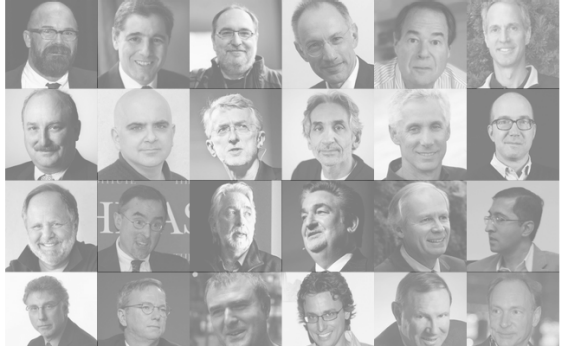Today, a group of three Harvard-funded journalists joined with the Nieman Journalism Lab to release “Riptide,” a sweeping oral history of the digital disruption of the news industry. The project is ambitious: It sets out to understand what the shift toward “citizen journalism and smartphone photojournalism, crowdsourcing, universal access to data and, of course, a world awash in Twitter feeds” means for the “future of democracy itself.”
Soon after the project went live, those Twitter feeds started lighting up with questions about Riptide’s own democratic approach. Of the 61 people interviewed for the history, only five are women. Just two are not white. Most of them are telling the history of the internet news revolution from a perch in an executive suite.
At this point, diversity counts are so frequently and reliably depressing that mounting another one seems hopeless. “Organization Ignores Women, Minorities” is a boilerplate story. But “Riptide” is a particularly stunning example of how neglecting the full range of human perspectives fundamentally undermines the project at hand. Riptide claims to present stories from across the “hierarchy” of the digital disruption, from “the mighty” to “the eyewitnesses.” Really, it reflects perspectives ranging from “the chairman” to “the CEO.” This is a discussion about democracy led by three white men interviewing a group of overwhelmingly wealthy, powerful, white, male people. It’s embarrassing. As Online News Association Digital Director Jeanne Brooks put it: “How could the authors not see the irony of this oversight?”
I asked Brooks to offer the names of some players in the digital disruption who could add much-needed depth to the oral history. Her shortlist includes Dori Maynard, president of the Robert C. Maynard Institute for Journalism Education; Anna Holmes, the founding editor of Jezebel; Rinku Sen, the publisher of Colorlines; and Alphonso Van Marsh, a CNN correspondent who pioneered digital newsgathering for the network. Then there are all the everyday women and people of color who are disproportionately using Facebook and Twitter to create, share, and read their own stories online. These people may not be as wealthy, famous, or fancy as, say, Twitter CEO Dick Costolo, but valuing the voices of regular citizens is actually the point of democracy.
Listening to these people is also just good business for a news industry struggling to adapt to the internet age. Riptide may be published online, but its focus on “official” accounts and “expert” opinions to the exclusion of all others is a stale old-media impulse. As we “reflect on history to shine light on viable paths forward,” Brooks says,” we can’t “continue to ignore critical segments of the population in both their contributions and their experiences.” If we do, “the solutions will fail.”
